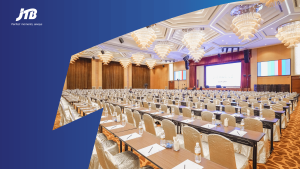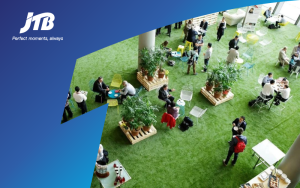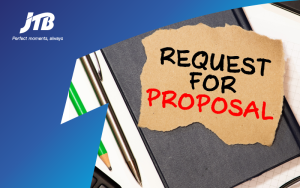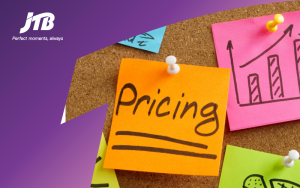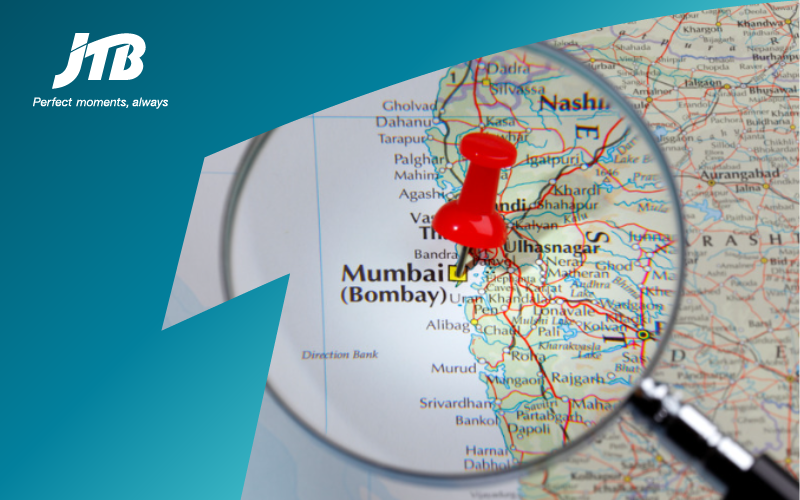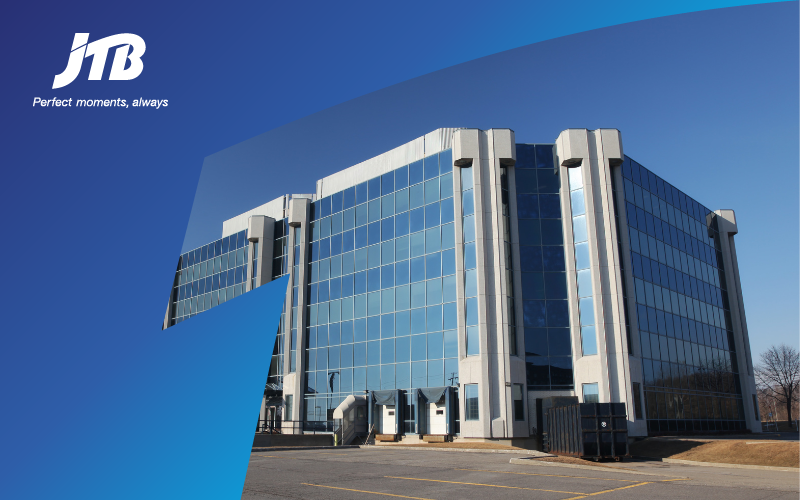Effective negotiation skills are indispensable in event management. In orchestrating a flawless event, every detail contributes to a memorable experience for attendees. Amidst event planning intricacies, securing an ideal event venue within budget is pivotal. Negotiation, far from a mere skill, emerges as a strategic tool in realizing this objective. Consider the satisfaction derived from securing a venue that not only meets budgetary constraints but also exceeds expectations with additional amenities. Such accomplishments underscore negotiation’s significance in event planning.
In this blog, we explore event negotiation, offering insights and strategies to navigate this domain with confidence. From discerning event venue landscapes to dissecting negotiation principles, we equip readers to secure optimal deals and maximise return on investment. Whether an experienced event planner or a novice, anticipate elevating negotiation acumen and unlocking success in event management.
How to Evaluate and Secure the Best Deal for Your Event Venues
In the current condition, the following are the top features to consider to secure a deal for the corporate event venue. These will also assist you in regaining your track and beginning to find event venues.
1. Destinations and Venues at Your Fingertips
Utilising technology in venue sourcing empowers you to achieve your objectives more efficiently than a manual approach. Without technological assistance, narrowing down can become an overwhelming task, despite its necessity. Identifying a venue that fulfils your group’s requirements while fostering the highest level of contentment among attendees is imperative.
Venue sourcing technology provides you with immense sourcing power by offering an efficient online marketplace. The challenging and exhausting task of searching through dozens of open windows in your browser is unnecessary when you have access to a robust database.
Pro Tip: For any corporate event planner using your account to be aware of the credit available for use over the next 6 to 12 months, it is recommended that your venue search software permits you to filter search results to display cancelled spaces at the top.
2. Identify Key Suppliers
Thoroughly researching and identifying the suppliers whose contributions are critical to the success of your event is a key step. This includes marketing agencies, platform providers, content creators, technical support personnel, and third-party services. Compiling a list of prospective suppliers who can fulfill your requirements through research will give you confidence in your decision-making process.
Learn how JTB India can optimise your negotiation strategy for event success!
3. Establish an Event Profile
Your corporate event and meeting profile will include a list of desired amenities from the venue. It establishes expectations and determines and specifies all the information you need from a supplier.
Submission
You should include the event venue’s submission requirements in the Request for Proposal (RFP). These include the proposal deadline, method of return, and anticipated decision date.
Timing
The occurrence’s time and date should be specified. Include the time at which attendees are required to arrive at the venue in advance of the occasion.
Event
This section of your RFP is the most vital factor. It is where every event detail should be included. Several noteworthy elements of information include:
- Nature of the event
- Structure of the event
- Subject, outline, and ideals of the occasion
- Pictures depicting past events or any other pertinent historical information would assist.
- Ambiance and design preferences of any kind
- Social media handles and your event page
Audience
Because it involves the demographics (characteristics such as age, gender, and occupation) of your intended audience, your RFP should specify the number of attendees you expect at the event.
Conference Room
It includes the required room dimensions, the pre-function area, and the room by the anticipated number of attendees. Request the venue’s floor plan and information on the availability of a green room (a room where performers, speakers, or guests can relax before or after their appearance). This will assist you in organising your event-related materials and setting up the space for the occasion.
Food and Beverage
In this section, specify the amount allocated for catering expenses and the variety of refreshments offered to the attendees. Please also ensure to specify any meal preferences or dietary restrictions that may be present.
WiFi, Technology, and Audiovisual
Specify the equipment and AV configuration specifications for the room. Also, specify whether you require WiFi connectivity and any other technology.
4. Send Your eRFPs in a Flash
You have completed your preliminary research by selecting several hotels and conference centres that meet your requirements. Thus, narrow your options to one or two destinations. As a result of your research, you should now have a shortlist of venues that meet your requirements. Technology has the potential to enhance speed and efficiency when those attributes are most crucial. At this stage, it is suitable to issue an electronic Request for Proposal (RFP) to the venues to see the variety of responses that ensue.
Additionally, when venues receive eRFPs via sourcing technology, they become aware they are competing with other venues for business. This results in faster-than-usual response times. Ensuring your eRFP is detailed can help you receive a more comprehensive response from the venue and avoid duplicate correspondence.
5. Narrow Down Your Choices in Seconds
Technology for sourcing venues integrates all relevant data in a single location. Key data such as mean daily meal expenses, the number of accommodations, entertainment and activities options, star ratings, promotional offers, and venue images are all accessible for analysis and review with a few simple mouse clicks.
If hotels are overwhelmed with business, it is advisable to strengthen relationships with hotel contacts and preferred suppliers by copying them on all requests for proposals (RFPs) distributed via venue sourcing technology.
6. Evaluate Your eRFP Responses More Efficiently
If you do not use an electronic request for proposals (RFP) tool, hotel proposals may be presented in various formats, some simpler to understand than others. During times of uncertainty, the burden of submitting various ideas in various forms may be very time-consuming and perplexing.
When you choose a digital solution, not only will hotels provide proposals in a style that is easy to grasp, but they will also give you the means to compare them side by side once they have been sent.
7. Find Pricing Deals
Understanding each location’s price structure is crucial. Some venues offer seasonal pricing, which means that the cost of hiring such venues may be reduced during specific seasons. Inquire about the prices for the event venue of your choice on the date you want to use it. If you can be flexible with your dates, you increase your chances of securing a better deal, instilling a sense of hope in your venue selection process.
If your event has a limited lead time, you should ask about your connections with the venue to inform you of any last-minute offers. There are sometimes excellent savings to be obtained in these situations. Those venues currently undergoing renovation or have yet to open their doors should be considered if you are organising an event that will take place in the far future. They are going to be eager to get your business and could be able to even negotiate it more competitively.
8. Trust in Technology
Locating a venue can be difficult. Comparing locations, credentials, and capacities requires using excessive open windows. Integrating technology into a unified platform resolves this challenge. This approach contributes to environmental sustainability by allowing virtual site visits and submission of eRFPs.
A few mouse strokes are enough to access and analyse vital data, including, but not limited to, average daily meal costs, average hotel room rates, the total number of sleeping rooms, activities and entertainment options, star ratings, promotional data, and images of the event venues.
This will become even more critical to your bottom line if you utilise the technology to store all previous proposals and contracted rates, which you can leverage when negotiating with suppliers.
9. Virtual Site Visits with Real-time Collaboration
In these dynamic times, new regulations and rules may differ by state and venue. Although information about the hotel’s construction year, total meeting space, and adjacent attractions can be obtained through procurement technology, site visits remain crucial. As a result of travel restrictions, venue policies, and reduced budgets, site visits may no longer be workable in the conventional sense.
Moreover, as a reference, working with photos alone on floor plans may be impractical. Collaborate virtually with potential venues to maximise available space while gathering floor plans and diagrams. Before visiting a venue in person, you can verify that the options on your shortlist can accommodate the size and setup of your event.
Pro Tip: It is also possible to simplify this process by utilising 3D event diagramming tools, which enable real-time collaboration of seating, setup, and other aspects. As with in-person site visits, ensure you prepare all your essential inquiries in advance.
10. A Centralised Hub for All Your Event Venue Data
The capacity to store all historical data in a records system is a large advantage of digital sourcing. This enables users to retrieve all the necessary information to make well-informed decisions on immediate and long-term prospects. Leverage the information you have accumulated through previous contracts and offers on your technology to affect your suppliers’ negotiations; this will become even more significant as the contract duration approaches.
Venue purchasing technology is a more efficient alternative to other methods of venue acquisition because it reduces working hours and enables you to locate optimal venues at affordable rates.
Best Event Venue Sourcing Practices and Tips
Consider the following practices when selecting the ideal venue for your event:
- Consider the Amenities that Are Particularly Significant to You: Ensure the selected venue can provide every amenity you need, including catering services, ample parking, and cutting-edge audiovisual equipment. Compile an exhaustive list of these necessities.
- Be Flexible with Your Dates and Times: One strategy to improve the likelihood of securing the desired venue is contemplating several alternative dates.
- Get Everything in Writing: To prevent future misunderstandings or unpleasant circumstances, it is vital to have a comprehensive and precise agreement with the venue.
- Willing to Negotiate with the Venue to Secure the Most Favourable Terms: Choosing to be flexible may result in helpful concessions and supplementary benefits, such as complementary services or reduced rates.
- Read Numerous Venue Evaluations: It is crucial to analyse many reviews to understand the venue and experience, even if your closest acquaintance has recommended the ideal location.
Conclusion
It is not best practice to leave anything to chance in light of the consequences of new rules and regulations. Event venue sourcing is one of the most critical aspects of event organisation and must be executed. Using venue-sourcing technology, like JTB Connect can help an enormous part of the concern associated with manual sourcing.
Obtaining venues for an event is a daunting undertaking. Because you are already familiar with the area, you may be interested in returning to the venues you had reserved before. However, because every industry evolves, things may differ from what they were before. Thus, budget analysis is needed, and the ideal location must be selected before the venue is engaged. If you are prepared to begin your research, connect with JTB India to explore potential vendors, event venues, and ideas for your upcoming event.


